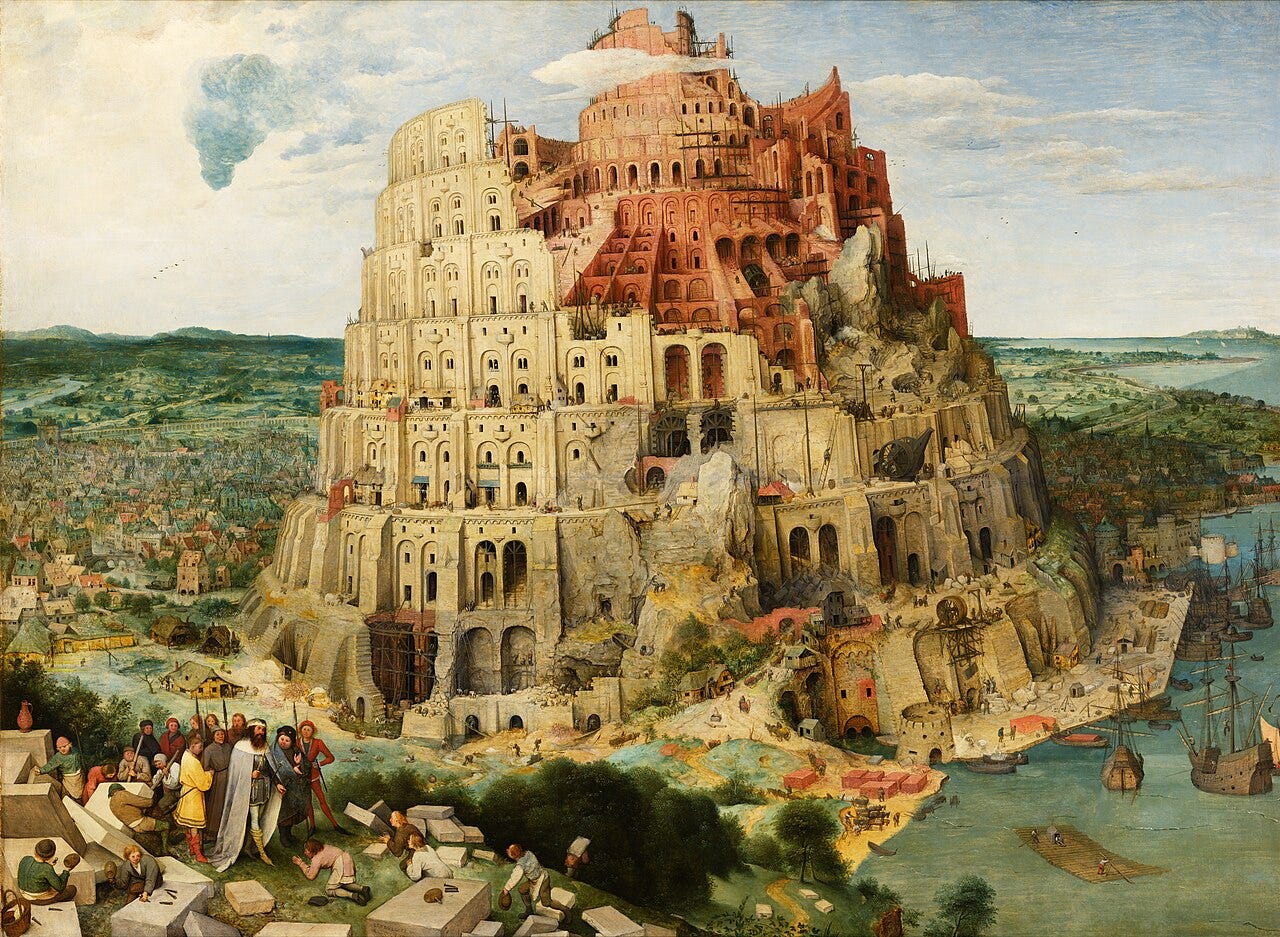Building In Light of the Eschaton
Why do anything when you know how it all ends?
“And I heard a loud voice from the throne, saying, ‘See the home of God is among mortals. He will dwell with them; they will be his peoples, and God himself will be with them; he will wipe every tear from their eyes. Death will be no more; mourning and crying and pain will be no more, for the first things have passed away.”
— Revelation 21:3-4
“Come now, you who say, ‘Today or tomorrow we will go to such and such a town and spend a year there, doing business and making money.’ Yet you do not even know what tomorrow will bring. What is your life? For you are a mist that appears for a little while and then vanishes. Instead you ought to say, ‘If the Lord wishes, we will live and do this or that.’ As it is, you boast in your arrogance; all such boasting is evil. Anyone, then, who knows the right thing to do and fails to do it, commits sin.”
— James 4:13-17
There are these two young fish swimming along and they happen to meet an older fish swimming the other way, who nods at them and says “Morning, boys. How’s the water?” And the two young fish swim on for a bit, and then eventually one of them looks over at the other and goes “What the hell is water?”
— David Foster Wallace
Why build?
It may seem like a strange question. Building is an activity inherent throughout nature—beavers construct dams, primates fashion tools, and humans have developed layers of abstraction that have resulted in our current civilization. Without building, we would lack homes, meals, and medicine. We wouldn't have the stories we tell or even the wars we fight. The instinct to build—to create—appears primal.
For Christians, however, the question of building warrants careful consideration. When we build, we must ask about the purpose—the "telos"—of our project. Scripture offers several notable building stories: Noah's ark, the tower of Babel, and Solomon's temple in Jerusalem. Each of these projects had a distinct end in mind. Noah built to preserve life, the people of Babel sought to reach the heavens, and Solomon constructed a place for worship and a focal point for God's presence on earth.
For Christians, building warrants careful consideration because we know the telos—the ultimate purpose—of history: the final judgment and the reconciliation of all things in heaven and on earth through Christ. We understand the end of the story. Unlike the ancients before Christ who believed in an endless cycle, we see history as having a clear direction and purpose.
The early church was keenly aware of this, and lived like it. They pooled their resources communally and lived as though the second coming of Jesus was imminent. Now, 2000 years later, we find ourselves still awaiting his return. In can feel interminable, futile even. But it is nonetheless a true promise, one we return to church every Sunday to be reminded of and affirm together at the Eucharist when we proclaim the mystery of faith — that “Christ has died, Christ is risen, and Christ will come again”.
But if we know the end of the story, does that not make the creation of new things superfluous? Is it not a waste of time to construct buildings, launch rockets, or develop novel means of exchange? Is the design and development of new technology little more than arrogant boasting, as St. James warns us?
I think, for Christians, the answer as to why we should build for the future lies in the novel understanding of time that the Gospel introduced to humanity. To revisit David Foster Wallace’s joke about fish in water, the idea of history as having an innate linear direction is very much like the water in which we swim. The notion of progress — political, economic, moral, technological — is something we take for granted, but is not in fact a given. Momentum toward some end is a deeply Christian idea. But the modern notion of progress is in a sense something that was hijacked from Christianity. This was one of the reasons that the Catholic priest and philosopher Ivan Illich identified modernity as essentially a corruption of Christianity.
But in 2024, we’re living in a moment of narrative collapse. The shared understanding of history that was common in the west has slowly been eroding since the World Wars, and that erosion of common understanding has only accelerated and continues to accelerate. For many, especially those who are younger, the notion that history has any momentum toward a shared hope seems increasingly remote.
I don’t think this is necessarily a bad thing. Politics and economics are false messiahs that we’ve arguably placed our faith in, unconsciously, for a long time. Technology can just as easily be one of these false messiahs too.
But I think technology also presents a unique opportunity for Christians to proclaim, in a unique way, the promise of God in Christ for all of history again. Whether its building dwellings on the moon, harnessing nuclear fission for clean and abundant energy, programming new currencies, or 3D printing a church, all these projects are done with a view to posterity. They entail the belief that, God willing, there will be a tomorrow.


